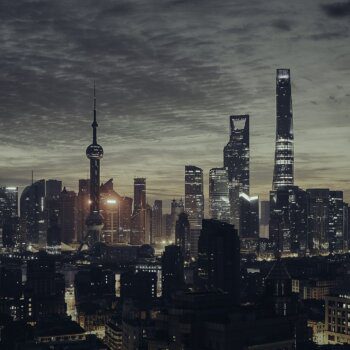Many of us would, if we knew what on earth the ego was. Indeed, trying to understand the totality of the human psyché is complex. Plato and Aristotle divided our psyché into three parts; so did Freud with the id, ego, and super-ego.
Modern psychologists describe the ego as the inner-narrator of our self-consciousness; umpiring our thoughts, feelings, and actions. The ego’s judgements produce inner-conflict and creates identity crises. The ego is impulsive rather than logical, visceral rather than reasonable.
Understanding the different ways the ego operates leads to overcoming it. Here are 8 manifestations:
1. Materialism
The Vedics called it Ahaṃkāra; tying your self-worth together with objects—a car, a house, a piece of jewelry. Ahaṃ refers to the Self; kāra is “any created thing.” When an object has the ability to make you feel better or worse, you’re caught in Ahaṃkāra, of ego-attachment.
Advertisers exploit the ego and make us believe we’ll feel better buying their product. Ironically, it’s low self-esteem that increases materialism. But it’s reversible; increasing self-esteem through highlighting your immaterial qualities — your sense of humor, your drive, your character, breaks the ego’s materialistic bondage.
Find your value and identity apart from external objects — the things that cannot be taken away from you.
2. Trapped in the Past
The ego can go from romanticizing your past, to degrading and trapping you in your past. When scars begin to heal, it rips them open again; when working toward a great future, it whispers that your best days are behind you.
Our egos are afraid of the unknown. Our past experiences — good or bad — are familiar, and we’re comfortable with what’s familiar. It’s the reason many stay in bad relationships.
Realize your past does not define you, nor will it dictate your future. Although the ego’s intention may be to keep you safe by being comfortable, the pull towards the past cripples what is being created in your present, and for your future.
3. Inferiority Complex
The ego doesn’t just live next door to the Joneses, it mows their lawn, for free. It constantly speaks the language of “not good enough.” Any achievement is undermined, any accomplishment is mocked. Overcoming the inferiority caused by ego means ceasing to play the comparison game; stepping away from the rat-race.
The ego dissolves when you run your own race, and step to the beat of your own drum. Find satisfaction in who you are today, and who you will become tomorrow. When the ego keeps looking to others, you need to look in the mirror.
4. Limitations and Scarcity
Our brain’s reticular activation system (RAS) brings to attention what we subconsciously mark as important. If you’re considering a new BMW, you’ll start noticing them everywhere.
The ego’s focus is one of limitation; it’s short sighted, and driven by fear of running out. As a result, your RAS sees everything in a limited sense: not only finances, but also happiness and healthy relationships.
The ego always see the glass half empty and the cloud without the silver lining. Our perceptions shape reality, if you focus on limitations, you will surely experience them. Silence the ego, and choose to see the world of abundant possibilities.
5. Self-Sabotage
Alfred Lord Tennyson said, “‘Tis better to have loved and lost than never to have loved at all.” The ego doesn’t think so. It prefers to keep you in bubble-wrap rather than risk being hurt. And so when something is heading in a good direction, the ego orchestrates destructive behavior to avoid the ‘risk’ and stay safe. Remember the ego is afraid of the unknown, good or bad.
Embrace the experience, and be conscious of your ego trying to steer you off course just because you’re heading toward an unknown destination. Never let a potential ‘sad’ ending overshadow an incredible experience.
6. The Stoic
The ego doesn’t like being naked — emotionally. It equates transparency and vulnerability with weakness, so it puts up walls. But these walls truncate the full expression of your human self. Emotions are healthy, and should never be bottled up. It causes us to live less than who we truly are.
To let fear, ridicule, and judgment block your untethered emotions and beliefs is to hide behind the veil of ego.
7. Reacting Rather Than Responding
The ego is like an electric fence protecting a false, elevated identity — ready to react at any minute. Every comment is an insult, and any advice is criticism. It’s not just wearing your heart on your sleeve, it’s wearing your self-worth on your sleeve, and then picking a fight.
The ego-free person is able to process before responding, to restrain the visceral and make room for the reasonable, to think before acting. Understand that personal attacks from other people reflects more of their character than yours; that will help your hyperactive-bodyguard ego to relax.
8. The Tyrant of Productivity
We’re workaholics because the ego measures our value by what we achieve and produce. Yet there is something profound in simply who we are as human beings. We’re surrounded with infinite galaxies, but we are a speck. However, we are a speck with the consciousness to somehow grasp the infinite. We are a nail that understands it is part of a mansion.
But the ego gets lost in productivity and forgets reflection, awe, and appreciation. To create is a amazing ability — but it’s a byproduct of our amazing being. From being comes creating, not the other way around.





























